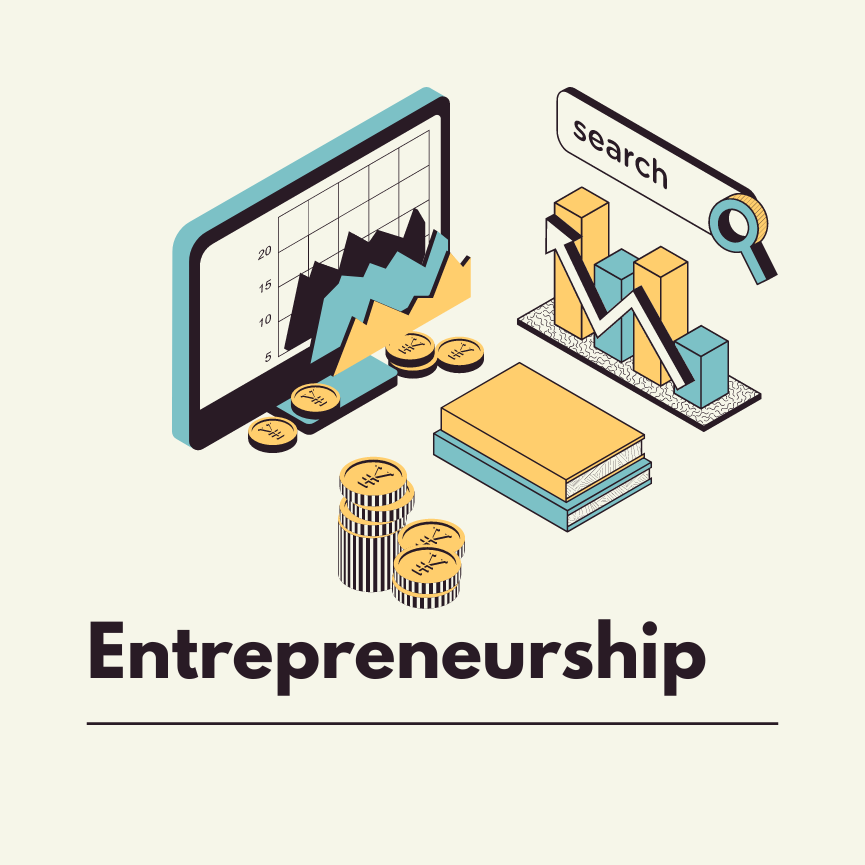
- May 09, 2024
- 13 Views
- 0 Comments
Empowering Autistic Individuals Through Entrepreneurship
Empowering Autistic Entrepreneur: Unlocking Potential and Creating Inclusive Opportunities
Did you know that empowering autistic individuals through entrepreneurship can lead to higher employment rates and foster a more inclusive society?
Autism, a neurodevelopmental disorder characterized by challenges in communication, social interaction, and repetitive behaviors, affects millions of individuals worldwide. While there is no one-size-fits-all approach to supporting people with autism, one avenue that has shown remarkable promise is entrepreneurship. Entrepreneurship provides autistic individuals with a unique opportunity to leverage their strengths, exercise their creativity, and thrive in a supportive and inclusive environment. In this comprehensive article, we will explore the concept of empowering autistic individuals through entrepreneurship, the benefits it offers, and the strategies to make this empowerment a reality.
Autistic Entrepreneurs an Overview
Autism Spectrum: Diverse Talents and Challenges
The autism spectrum is incredibly diverse. No two individuals with autism are exactly alike, and they possess a wide range of talents and challenges. Some individuals with autism excel in areas such as mathematics, technology, art, music, and scientific research. They often display exceptional attention to detail, problem-solving abilities, and a unique perspective on the world. However, these strengths can sometimes be overshadowed by difficulties in communication, social interactions, and sensory sensitivities.
The Entrepreneurial Mindset
At its core, entrepreneurship is about identifying opportunities, solving problems, and taking calculated risks to create value. These characteristics align closely with the strengths often associated with autism, making entrepreneurship a natural fit for many individuals on the spectrum. Here are some ways in which the entrepreneurial mindset can benefit autistic individuals:
- Passion and Specialization: Autistic individuals often have intense passions and a deep focus on specific subjects. This focus can lead to specialized knowledge and expertise, which can be channeled into entrepreneurial ventures.
- Attention to Detail: Attention to detail is a valuable trait in business. Autistic individuals tend to excel in this area, ensuring that products or services meet high-quality standards.
- Persistence: Entrepreneurship requires resilience and the ability to learn from failures. Many autistic individuals possess a strong sense of determination and perseverance, which are vital for success in the business world.
- Innovation: Thinking outside the box is a hallmark of entrepreneurship. Autistic individuals may approach problems from unique angles, leading to innovative solutions and business ideas.
The Benefits of Entrepreneurship for Autistic Individuals
- Independence and Autonomy: One of the most significant benefits of entrepreneurship for autistic individuals is the opportunity for independence and autonomy. Traditional employment settings may not always accommodate the unique needs and preferences of autistic individuals, making self-employment an attractive option. As entrepreneurs, they can set their own schedules, work environments, and business goals, providing a sense of control over their lives.
- Capitalizing on Strengths: Entrepreneurship allows individuals to capitalize on their strengths and interests. Autistic entrepreneurs can choose business ventures that align with their passions and areas of expertise. This alignment can lead to greater job satisfaction and success.
- Flexible Work Environment: The traditional 9-to-5 office environment can be challenging for some autistic individuals due to sensory sensitivities or difficulties with social interactions. Entrepreneurship offers the flexibility to create a work environment that suits their needs, whether it's a quiet home office or a sensory-friendly workspace.
- Building Self-Esteem and Confidence: Launching and managing a successful business can significantly boost self-esteem and confidence. As autistic entrepreneurs overcome challenges and achieve their goals, they develop a strong sense of accomplishment and self-worth.
- Creating Inclusive Employment Opportunities: Autistic entrepreneurs often prioritize creating inclusive workplaces. By setting an example of diversity and inclusion in their businesses, they contribute to a more accepting and understanding society.
Challenges Faced by Autistic Entrepreneurs
While entrepreneurship offers numerous advantages, it also comes with challenges that autistic individuals may encounter. It's essential to acknowledge these challenges and work towards creating a supportive environment:
Communication Difficulties
Effective communication is crucial in business, from networking to negotiating deals. Autistic individuals may face challenges in verbal and non-verbal communication. Providing communication training and support can help bridge this gap.
Managing Stress and Anxiety
Entrepreneurship can be stressful, with long hours, financial pressures, and uncertainty. Autistic individuals may be more susceptible to stress and anxiety. Implementing stress management techniques and offering mental health support is essential.
Networking and Socializing
Networking is a fundamental aspect of entrepreneurship. Autistic individuals may find socializing and networking events overwhelming. Encouraging participation in online communities and providing guidance on networking strategies can be beneficial.
Access to Resources
Access to resources such as funding, mentorship, and business development programs can be limited for autistic entrepreneurs. Creating specialized programs and initiatives that cater to their needs can help level the playing field.
Strategies for Empowering Autistic Individuals through Entrepreneurship
Empowering autistic individuals to become successful entrepreneurs requires a collaborative effort from various stakeholders, including educators, employers, policymakers, and the community at large. Here are some strategies to consider:
Education and Training
- Early Intervention: Identify and support entrepreneurial potential in autistic individuals from an early age through specialized education and mentorship programs.
- Skill Development: Offer training in essential entrepreneurial skills such as business planning, marketing, financial management, and communication.
Mentorship and Support
- Mentorship Programs: Establish mentorship programs that connect autistic entrepreneurs with experienced business leaders who can provide guidance and support.
- Peer Support Groups: Create peer support groups where autistic entrepreneurs can share experiences, learn from each other, and offer emotional support.
Access to Funding
- Diversity and Inclusion Initiatives: Encourage financial institutions and investors to prioritize funding for businesses owned by autistic individuals as part of diversity and inclusion efforts.
- Grants and Subsidies: Develop grant programs and subsidies specifically designed to support autistic entrepreneurs in launching and growing their businesses.
Creating Inclusive Workspaces
- Sensory-Friendly Environments: Design workspaces that are sensory-friendly, accommodating the sensory sensitivities of autistic individuals.
- Flexible Work Arrangements: Promote flexible work arrangements that allow autistic entrepreneurs to adapt their schedules and work environments as needed.
Advocacy and Awareness
- Public Awareness Campaigns: Launch public awareness campaigns to educate the community about autism and entrepreneurship, promoting acceptance and understanding.
- Policy Advocacy: Advocate for policies that promote diversity and inclusion in entrepreneurship and ensure equal opportunities for autistic individuals.
Success Stories: Autistic Entrepreneurs Making a Difference
To illustrate the potential of autistic entrepreneurs, here are a few inspiring success stories:
- Temple Grandin: Dr. Temple Grandin, a renowned autism advocate, is also a successful entrepreneur. She designed livestock handling facilities that prioritize animal welfare, revolutionizing the industry.
- Haley Moss: Haley Moss, an attorney, artist, and author, is a prominent advocate for neurodiversity. She co-founded the Neurodiversity Bar Association to promote inclusivity in the legal profession.
- Derek Paravicini: Derek Paravicini, a blind autistic pianist, and composer has turned his passion for music into a successful career, performing internationally and advocating for the potential of individuals with autism.
Empowering autistic individuals through entrepreneurship is a pathway to unlocking their potential, promoting independence, and fostering inclusive communities. By recognizing and nurturing the unique strengths and talents of autistic individuals, we can create a more inclusive society where entrepreneurship becomes a viable and rewarding option for all. Through education, support, and advocacy, we can pave the way for a future where autistic entrepreneurs thrive and contribute to the global economy while challenging societal perceptions and breaking down barriers.
In embracing the power of neurodiversity, we embark on a journey toward a more inclusive, innovative, and empathetic world where every individual, regardless of their neurological differences, can pursue their entrepreneurial dreams and make meaningful contributions to society.


Comments - 0 comments till now